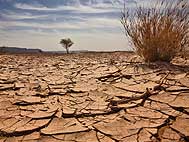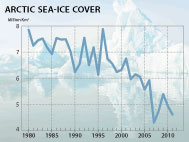| SEARCH |
-

Nov 17, 2015
Reflections on a three-decade legacy
The International Geosphere-Biosphere Programme (IGBP) will come to a close at t...
-
Nov 17, 2015
Use of and access to content on this website
Text and images produced by IGBP in house are free to use with appropriate credi...
-
Nov 12, 2015
Bella Gaia performance and panel discussion to mark IGBP's closure
A musical performance by Bella Gaia will celebrate the achievements and legacy o...
-

Towards Future Earth:
evolution or revolution?
During its three decades of existence, the International Geosphere-Biosphere Pro...
-
A personal note on IGBP and the social sciences
Humans are an integral component of the Earth system as conceptualised by IGBP. João Morais recalls key milestones in IGBP’s engagement with the social sciences and offers some words of advice for Future Earth.
-
IGBP and Earth observation:
a co-evolution
The iconic images of Earth beamed back by the earliest spacecraft helped to galvanise interest in our planet’s environment. The subsequent evolution and development of satellites for Earth observation has been intricately linked with that of IGBP and other global-change research programmes, write Jack Kaye and Cat Downy .
-
Deltas at risk
Around 500 million people worldwide live on deltas, but many of the world's deltas are sinking due ...
-
Climate change: the state of the science
A new data visualization released on the first day of the plenary negotiations at the UNFCCC’s clima...
-
Climate Change:
the State of the Science
Videos now online from the Stockholm public forum to mark the launch of the IPCC's climate report, 2...

Global Change and Terrestrial Ecosystems
GCTE Objectives
- To predict the effects of changes on climate, atmospheric composition, and land use on terrestrial ecosystems, including agriculture, forestry and soils, as well as ecological complexity.
- To determine how these effects lead to feedbacks to the atmosphere and the physical climate system.
GCTE focused on the following issues: (i) the terrestrial carbon cycle with an emphasis on underlying drivers and processes of contemporary and future carbon quantities (fluxes and pools); (ii) vegetation dynamics and the processes that control them at the local and global scales, with an emphasis on landscape processes and patterns that dominate vegetation dynamics; (iii) impacts of global change on food production systems including the major species that provide the bulk of food to humanity (e.g., wheat, rice) with the associated pests and diseases and biogeochemical consequences; (iv) the links between ecosystem functioning and biodiversity, and associated ecosystem stability, resilience, and buffering capacity to natural and human perturbations.
GCTE was terminated in 2003 but its science and scientific community are contributing to the current Global Land Project (GLP), a core project under IGBP-II.
The GCTE International Project Office was kindly hosted by CSIRO, Australia throughout its activity period with generous financial support from the Australian Department for Industry, Science and Resources.
GCTE Legacy
Global Change and Terrestrial Ecosystems. Walker, B.H. and Steffen, W.L. (eds). IGBP Book Series No. 2. Cambridge University Press, Cambridge, UK, 1996, 637 pp.
The Terrestrial Biosphere and Global Change: Implications for Natural and Managed Ecosystems. Synthesis Volume. Walker, B.H., Steffen, W.L., Canadell, J. and Ingram, J.S.I. (eds). IGBP Book Series No. 4. Cambridge University Press, Cambridge, UK, 1999, 450 pp.
IGBP closed at the end of 2015. This website is no longer updated.
-

Global Change Magazine No. 84
This final issue of the magazine takes stock of IGBP’s scientific and institutional accomplishments as well as its contributions to policy and capacity building. It features interviews of several past...
-

Global Change Magazine No. 83
This issue features a special section on carbon. You can read about peak greenhouse-gas emissions in China, the mitigation of black carbon emissions and the effect of the 2010-2011 La Niña event on gl...
-
INTERGOVERNMENTAL PANEL ON CLIMATE CHANGE:
How green is my future?
UN panel foresees big growth in renewable energy, but policies will dictate just how big.
-
UK:
'The Anthropocene: a new epoch of geological time?'
Royal Society, Philosphical Transactions A




















